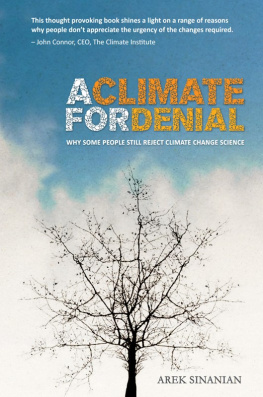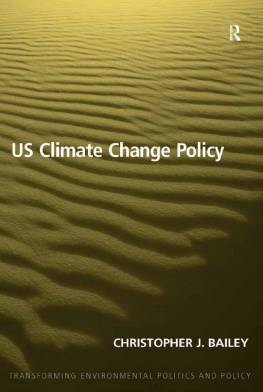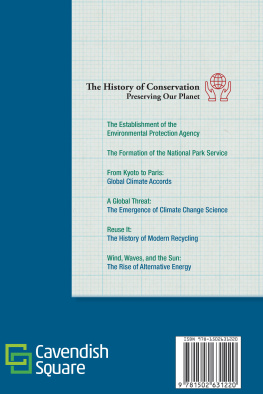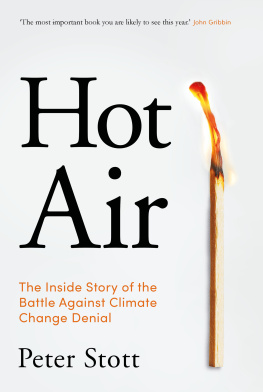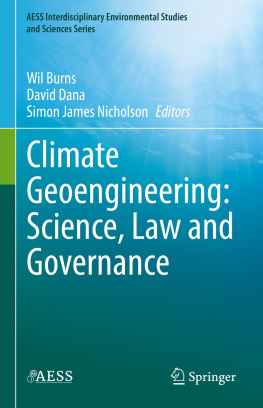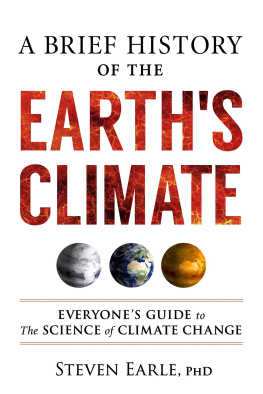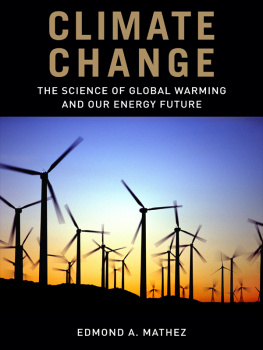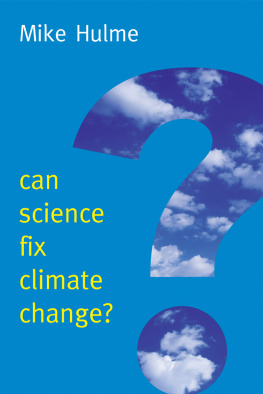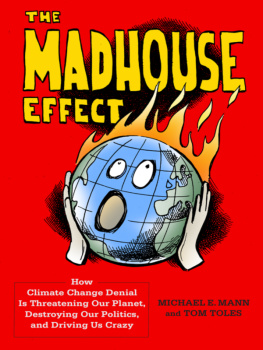This book is dedicated to my sons Taveet and Daniel Sinanian and their generation who will bear the brunt of addressing the challenges of climate change that my generation will leave behind.
I am grateful to many of my friends who encouraged and supported me in writing this book. I specially want to thank David Longfield and Winsome Byrne of Longueville Media for their editing skills and encouragement and Gary Martin for his early editorial input into the manuscript.
A Climate
for Denial
Why do some people still
reject climate change science?
Arek Sinanian

First published 2017 for Arek Sinanian by

Longueville Media Pty Ltd
PO Box 205
Haberfield NSW 2045 Australia
www.longmedia.com.au
Tel. +61 2 9362 8441
Copyright Arek Sinanian 2017
All rights reserved. No part of this publication may be reproduced or transmitted in any form or by any means, electronic or mechanical, including photocopying, recording or by any information storage and retrieval system, without the prior permission in writing from the author or copyright holders.
The author is not responsible for websites (or their content) that are not owned by the author.
For the National Library of Australia Cataloguing-in-Publication entry see nla.gov.au
978-0-9876213-4-4 (eBook)
Arek Sinanian
Arek Sinanian is an accidental author. A migrant to Australia of Armenian heritage, he arrived in Australia when he was 14 and able to speak only more than a few sentences of English. He completed a bachelor of science (engineering) degree and a master of engineering science at the University of New South Wales.
Early in his professional life, he became passionate about energy and resource efficiency and began consulting on environmental risk management, energy efficiency and greenhouse gas abatement. He became one of the earliest practitioners in greenhouse gas management and climate change risk assessment.
In 2005, Arek was accepted into the international roster of experts for the United Nations Framework Convention on Climate Change (UNFCCC) and became the only Australian voted on the prestigious six-person Accreditation Panel of the Joint Implementation Supervisory Committee (JISC) of the UNFCCC.
This book is a result of Areks fascination with the cognitive behavioural patterns he has observed in those who cant accept the science of climate change. When confronted with seemingly intelligent, educated people who were simply unable to accept the science, he began to question what the factors were in our accepting of information and why we tend to deny certain things against all rational thought processes. Are we all prone to denying facts that simply dont fit our personal identity? Do the facts somehow threaten or challenge our beliefs?
Climate change has become one of the most polarising issues of our time. Denial of the science by some, poses questions about their reasons and about the communication of complex issues to the global community.
Could the communication of climate change science have been done better? Is it a matter for more information to be made available, or is it the way information is being presented? Are there cognitive reasons for the denial? What can we learn from climate change denial? What can we learn from the failure of the debate?
This book looks at these quesitons, and more, with the aim of making sense of climate change denial.
Contents
Introduction
Climate change, its causes, its effects, and whether and how we should respond globally, nationally and individually is arguably one of the most divisive and polarising issues of the past decade. And its still going on.
There is considerable and compelling scientific evidence of the causes and long-term effects of climate change. A comprehensive study climate change is happening. This is partly why it is difficult to obtain public support for global agreements to tackle climate change.
There has been sustained effort to co-ordinate and organise scientific consensus and global actions through agreements, most notably the publications of the Intergovernmental Panel on Climate Change (IPCC) and the activities of the United Nations Framework Convention on Climate Change (UNFCCC). Despite these initiatives and considerable efforts to consolidate the science on climate, as well as attempts to agree on equitable and workable actions to reduce anthropogenic greenhouse gas emissions, we are nowhere near the targets needed to minimise the potential catastrophic impacts.
There are many fundamental lessons to learn from this failure to communicate the messages, and for governments to act. These lessons might also apply to the way we deal with other complex issues requiring globally coordinated action and agreements from food and water supply, refugees and mass migration, to child pornography and human trafficking.
There have been numerous studies on the behavioural and psychological aspects of climate science rejection why people just dont believe it or simply cant accept it. Some of these reasons are related and denial often involves more than one factor.
This book offers a snapshot of the reasons for the rejection through denial and tries to explain the complexities of selling essential messages to the average person, and winning the political support for effective and urgent action. It is intended to provide a better understanding of the reasons for the rejection of the science by a minority in the general public, and the difficulties policy makers have, in galvanising global action.
If you know someone who is a confirmed sceptic, or who finds it difficult to accept the truth of climate change science, dont be angry at them. They are human after all, and this book will hopefully explain just how human they are. Incidentally, throughout this book, the words and concepts of denial, scepticism and non-acceptance will be used interchangeably.
When I began my research, I had no idea how much insightful material I was about to find, or how interesting and complex the challenges are for climate change communication and for securing universal agreement for action on such a hot-button subject.
Some of the behavioural and other reasons that I have tried to explain are related and climate change denial in any person often involves more than one of the reasons. Some of them may overlap. Scepticism as a human cognitive issue is complex and a full discussion of them all would require a far more qualified and specialised expertise which I dont have. It suffices to say that we are all prone to denial. But there is a big difference between denial in our personal lives and the denial of climate change science. The difference is that one is a highly personal issue which normally only affects ourselves or at the most those immediately around us, the other affects future generations.
I am hoping that this book will broaden our conversation and perhaps identify further study in areas of our understanding human reactions to complex issues and communication which can achieve a better informed and more urgent action on climate change.
_____
Throughout this book, the term climate change will refer to anthropogenic climate change, that is, climate change due to human activity.
Cook, J., Nuccitelli, D., Green, S. A., Richardson, M., Winkler, B., Painting, R., Way, R., Jacobs, P., & Skuce, A. Quantifying the Consensus on Anthropogenic Global Warming in the Scientific Literature. Environmental Research Letters, 8. 2013.

